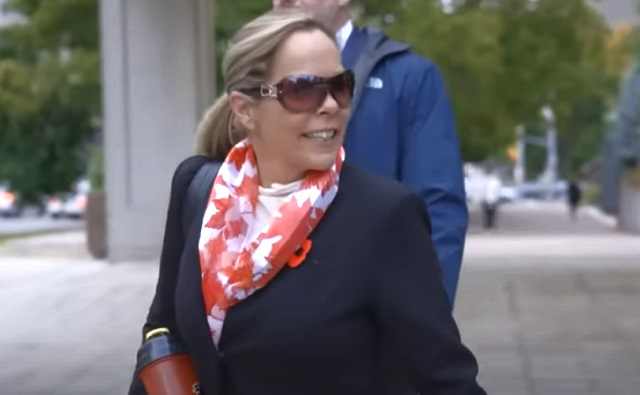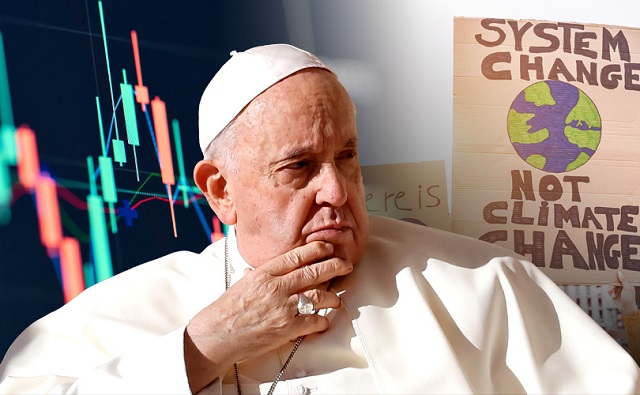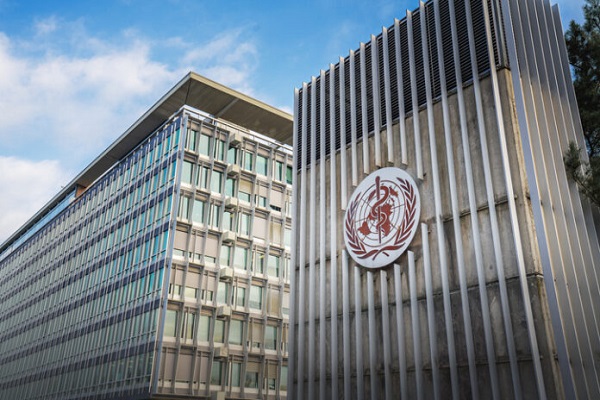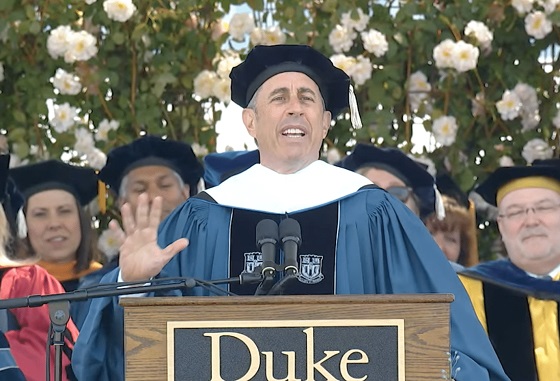COVID-19
Freedom Convoy judge allows some redacted internal police documents to be admitted as evidence

From LifeSiteNews
Justice Heather Perkins-McVey stated that in her view there is no reason not to disclose the redactions
On Day 26 of the Freedom Convoy leaders Tamara Lich and Chris Barber’s trial last Friday, Judge Heather Perkins-McVey ruled that certain sections of redacted internal police documents, which the defense has been asking to see, will be allowed to be viewed and then admitted as evidence to the court.
Perkins-McVey noted that while some information is protected by solicitor-client privilege, other parts are based on police officer statements and opinions, and thus will not be allowed as evidence.
“Regarding a duplication in the emails, Perkins-McVey states in her view there is no reason not to disclose these redactions,” noted the Democracy Fund, which is crowdfunding Lich’s legal costs on X (formerly Twitter) on Friday.
Lich and Barber’s lawyers had been waiting for a decision from Perkins-McVey regarding being able to view some internal police documents in full that were given to them but in a redacted form.
Last Wednesday, Perkins-McVey said that she would issue a decision regarding the “solicitor-client email disclosure issue on Friday, and it “will revolve around whether ‘some’ or ‘all’ of the email chain will be unredacted.”
Crown prosecutors did not want the information to be unredacted and tried to argue this case to the court.
The documents in question include a police email chain along with essential information from Ottawa Police Services (OPS) officers who had their cell phone data wiped after a so-called software update. The information on the cell phones was regarding important communications between the officers and protest organizers.
The court recently learned that a second police witness, Nicole Bach of the OPS Police Liaison Team (PLT), testified her police-provided phone was “wiped” of all information when asked by the judge if she had copies of vital information of conversations between her and protesters.
On Day 24 of the Freedom Convoy leaders’ trial, Perkins-McVey ordered the Crown to provide a unredacted document to the defense lawyers concerning internal police emails regarding a police officer phone upgrade that “wiped” the data of some devices.
The defense for Lich and Barber had a while ago made two defense disclosure applications requesting information from the Crown.
Lich and Barber’s defense had thus far only received completely blacked-out documents concerning the phone wipes of the OPS officers.
Lich and Barber are facing multiple charges from the 2022 protests, including mischief, counseling mischief, counseling intimidation and obstructing police for taking part in and organizing the anti-mandate Freedom Convoy. As reported by LifeSiteNews at the time, despite the non-violent nature of the protest and the charges, Lich was jailed for weeks before she was granted bail.
The Crown is trying to prove that Lich and Barber had somehow influenced the protesters’ actions through their words.
In early 2022, the Freedom Convoy saw thousands of Canadians from coast to coast come to Ottawa to demand an end to COVID mandates in all forms. Despite the peaceful nature of the protest, Prime Minister Justin Trudeau’s federal government enacted the Emergencies Act on February 14, the same day as “moving day.”
During the clear-out of protesters after the EA was put in place, one protester, an elderly lady, was trampled by a police horse and one conservative female reporter was beaten by police and shot with a tear gas canister.
Trudeau revoked the EA on February 23.
Lich and Barber’s trial has thus far taken more time than originally planned due to the slow pace of the Crown calling its witnesses. LifeSiteNews has been covering the trial extensively.
The trial is set to resume on November 8. However, dates beyond that have yet to be determined.
COVID-19
NIH Quietly Altered Definition For Gain-Of-Function Research On Its Website, Former Fauci Aide Confirms

 From the Daily Caller News Foundation
From the Daily Caller News Foundation
By JASON COHEN
National Institutes of Health (NIH) Principal Deputy Director Lawrence Tabak confirmed on Thursday that his agency’s communications department altered NIH’s definition for gain-of-function research, with the change being “vetted” by “experts.”
The NIH until Oct. 20, 2021 defined this research as “modif[ying] a biological agent so that it confers new or enhanced activity to that agent,” while “some scientists use the term broadly to refer to any such modification,” according to the House Oversight Committee. Republican Rep. Nicole Malliotakis of New York questioned Tabak, a former aide to Dr. Anthony Fauci, about the agency changing its definition of the research on its website, asking him who authorized the alteration.
WATCH:
The current website does not define gain-of-function research, but asserts this research is usually uninvolved with enhanced potential pandemic pathogens.
“The change was made by our communications department because of the confusion that people have about the generic term of gain-of-function and the specific term gain-of-function,” Tabak testified.
Malliotakis responded by suggesting the communications department would not be qualified to make a change like this and must have had other input.
“The content was vetted,” Tabak testified. “By individuals who are subject-matter experts.”
Fauci firmly denied that the National Institute of Allergy and Infectious Diseases (NIAID) funded gain-of-function research on bat-based coronaviruses at the Wuhan Institute of Virology (WIV) before the COVID-19 pandemic during a Senate hearing in May 2021.
“The NIH has not ever and does not now fund gain of function research in the Wuhan Institute of Virology,” Fauci said.
Tabak testified on Thursday that the NIH did fund this research at the Wuhan Institute of Virology, but it “depends on [the] definition.”
The NIAID, which Fauci previously led, funded the nonprofit group EcoHealth Alliance to study bat-based coronaviruses in China that consisted of the transfer of $600,000 to the WIV, the Daily Caller News Foundation previously reported.
COVID-19
COVID Lab Leak: Over four later, EcoHealth Alliance funding is finally suspended

From Heartland Daily News
Thursday, May 16, 2024
Federal Funding Stripped From Nonprofit at Center of COVID Lab Leak Controversy
Today, the Biden administration suspended federal funding to the scientific nonprofit whose research is at the center of credible theories that the COVID-19 pandemic was started via a lab leak at the Wuhan Institute of Virology.
This morning, the U.S. Department of Health and Human Services (HHS) announced that it was immediately suspending three grants provided to the New York-based nonprofit EcoHealth Alliance (EHA) as it starts the process of debarring the organization from receiving any federal funds.
“The immediate suspension of [EcoHealth Alliance] is necessary to protect the public interest and due to a cause of so serious or compelling a nature that it affects EHA’s present responsibility,” wrote HHS Deputy Secretary for Acquisitions Henrietta Brisbon in a memorandum signed this morning.
For years now, EcoHealth has generated immense controversy for its use of federal grant money to support gain-of-function research on bat coronaviruses at the Wuhan lab.
In a memo justifying its funding suspension, HHS said that EcoHealth had failed to properly monitor the work it was supporting at Wuhan. It also failed to properly report on the results of experiments showing that the hybrid viruses it was creating there had an improved ability to infect human cells.
Congressional Republicans leading an investigation into EcoHealth’s research in Wuhan, and the role it may have played in starting the pandemic via a lab leak, cheered HHS’s decision.
“EcoHealth facilitated gain-of-function research in Wuhan, China without proper oversight, willingly violated multiple requirements of its multimillion-dollar National Institutes of Health [NIH] grant, and apparently made false statements to the NIH,” said Rep. Brad Wenstrup (R–Ohio), chair of the House’s Select Subcommittee on the Coronavirus Pandemic in a statement. “These actions are wholly abhorrent, indefensible, and must be addressed with swift action.”
Beginning in 2014, EcoHealth received a grant from NIH’s National Institute of Allergies and Infectious Diseases (NIAID) to study bat coronavirus in China. Its initial scope of work involved collecting and cataloging viruses in the wild and studying them in the lab to spot which ones might be primed to “spillover” into humans and cause a pandemic.
Soon enough, EcoHealth used some of the viruses they’d collected to create “chimeric” or hybrid viruses that might be better able to infect human lung cells in genetically engineered (humanized) mice.
This so-called “gain-of-function” research has long been controversial for its potential to create deadly pandemic pathogens. In 2014, the Obama administration paused federal funding of gain-of-function research that might turn SARS, MERS, or flu viruses into more transmissible respiratory diseases in mammals.
In 2016, NIH flagged EcoHealth’s work as likely violating the 2014 pause.
EcoHealth President Peter Daszak argued to NIH at the time that the viruses his outfit was creating had not been proven to infect human cells and were genetically different enough from past pandemic viruses that they didn’t fall under the Obama administration pause.

Wuhan Institute of Virology and Peter Daszak of EcoHealth Alliance
NIH accepted this argument under the condition that EcoHealth immediately stop its work and notify the agency if any of its hybrid viruses did show increased viral growth in humanized mice.
But when these hybrid viruses did show increased viral growth in mice, EcoHealth did not immediately stop work or notify NIH. It instead waited until it submitted an annual progress report in 2018 to disclose the results of its experiments.
A second progress report that EcoHealth submitted in 2021, two years after its due date, also showed its hybrid viruses were demonstrating increased viral growth and enhanced lethality in humanized mice.
In testimony to the House’s coronavirus subcommittee earlier this month, Daszak claimed that EcoHealth attempted to report the results of its gain-of-function experiments on time in 2019, but was frozen out of NIH’s reporting system.
The HHS memo released today says a forensic investigation found no evidence that EcoHealth was locked out of NIH’s reporting system. The department also said that EcoHealth had failed to produce requested lab notes and other materials from the Wuhan lab detailing the work being done there and the lab’s biosafety conditions.
These all amount to violations of EcoHealth’s grant agreement and NIH grant policy, thus warranting debarment from future federal funds, reads the HHS memo.
That EcoHealth would be stripped of its federal funding shouldn’t come as too great a shock to anyone who watched Daszak’s congressional testimony from earlier this month. Even Democrats on the committee openly accused Daszak of being misleading about EcoHealth’s work and manipulating facts.
Rep. Raul Ruiz (D–Calif.), the ranking Democrat on the House’s coronavirus subcommittee, welcomed EcoHealth’s suspension, saying in a press release that the nonprofit failed its “obligation to meet the utmost standards of transparency and accountability to the American public.”
An HHS Office of the Inspector General report from last year had already found that EcoHealth had failed to submit progress reports on time or effectively monitor its subgrantee, the Wuhan Institute of Virology.
When grilling Daszak, Democrats on the Coronavirus Subcommittee went to great lengths to not criticize NIH’s oversight of EcoHealth’s work. The HHS debarment memo likewise focuses only on EcoHealth’s failures to abide by NIH policy and its grant conditions.
Nevertheless, it seems pretty obvious that NIH was failing to abide by the 2014 pause on gain-of-function funding when it allowed EcoHealth to go ahead with creating hybrid coronaviruses under the condition that they stop if the viruses did prove more virulent.
NIH compounded that oversight failure by not stopping EcoHealth’s funding when the nonprofit did, in fact, create more virulent viruses, and not following up on a never-submitted progress report detailing more gain-of-function research until two years later.
The House Subcommittee’s investigation into NIH’s role in gain-of-function research at the Wuhan lab is ongoing. Tomorrow it will interview NIH Principal Deputy Director Lawerence Tabak. In June, it will interview former NIAID Director Anthony Fauci.
Originally published by Reason Foundation. Republished with permission.
-

 Crime1 day ago
Crime1 day agoThe US Canadian border: Greatest number of terrorist watch list individuals being apprehended at northern border
-

 COVID-192 days ago
COVID-192 days agoNIH Quietly Altered Definition For Gain-Of-Function Research On Its Website, Former Fauci Aide Confirms
-

 Economy15 hours ago
Economy15 hours agoCanadians experiencing second-longest and third steepest decline in living standards in last 40 years
-

 Energy2 days ago
Energy2 days agoPope Francis calls for ‘global financial charter’ at Vatican climate change conference
-

 Great Reset17 hours ago
Great Reset17 hours agoBiden Administration Eager to Sign WHO Pandemic Treaty
-

 Opinion19 hours ago
Opinion19 hours agoOrdinary working Canadians are not buying into transgender identity politics
-

 Bruce Dowbiggin2 days ago
Bruce Dowbiggin2 days agoJerry Came to See The Babies. And They Walked Out On Him
-

 Energy19 hours ago
Energy19 hours agoNew Report Reveals Just How Energy Rich America Really Is






